WTO Covid-19 vaccine waiver leaves many disappointed
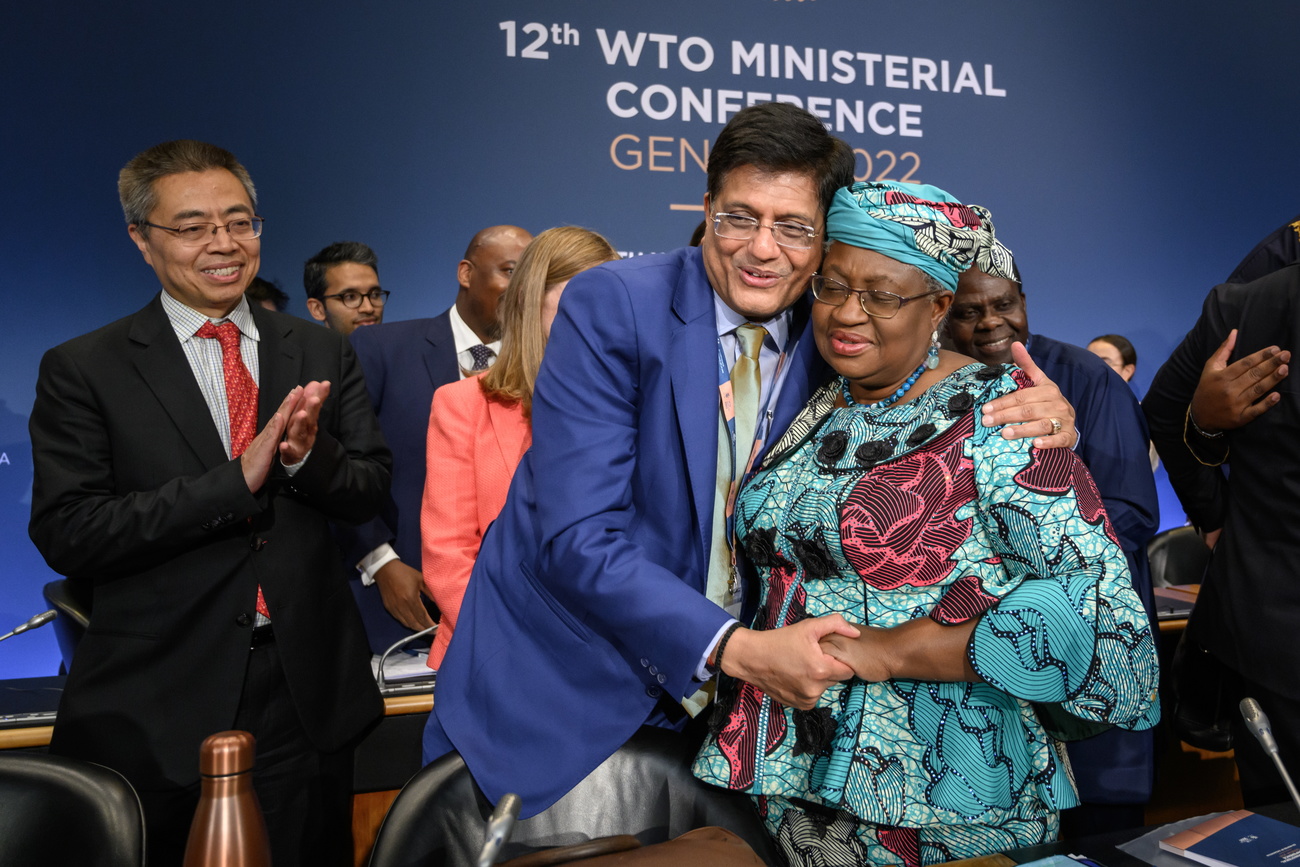
The World Trade Organization (WTO) Ministerial Conference ended with an unexpectedly hefty package of six trade agreements. Not everyone is rejoicing, however.
Hailed as a success, the WTO agreement to waive partial patents for Covid-19 vaccines is attracting criticism both from NGOs and from industry experts. They argue it goes either too far or not far enough.
“The decision is a disservice to the scientists who left no stone unturned and undermines manufacturing partnerships on every continent. The single biggest factor affecting vaccine scarcity is not intellectual property but trade,” said Thomas Cueni, director-general of the Geneva-based International Federation of Pharmaceutical Manufacturers & Associations (IFPMA) in a press release after the session.
The waiver of the WTO’s “TRIPS” agreement that governs intellectual property was one of the top issues of the ministerial conference, which ended in Geneva on Friday after a five-day standoff.
The agreementExternal link will allow developing countries to be granted compulsory licences of the Covid-19 vaccine for the next five years. This means they can produce generic vaccines at a lower cost but must financially compensate manufacturers.
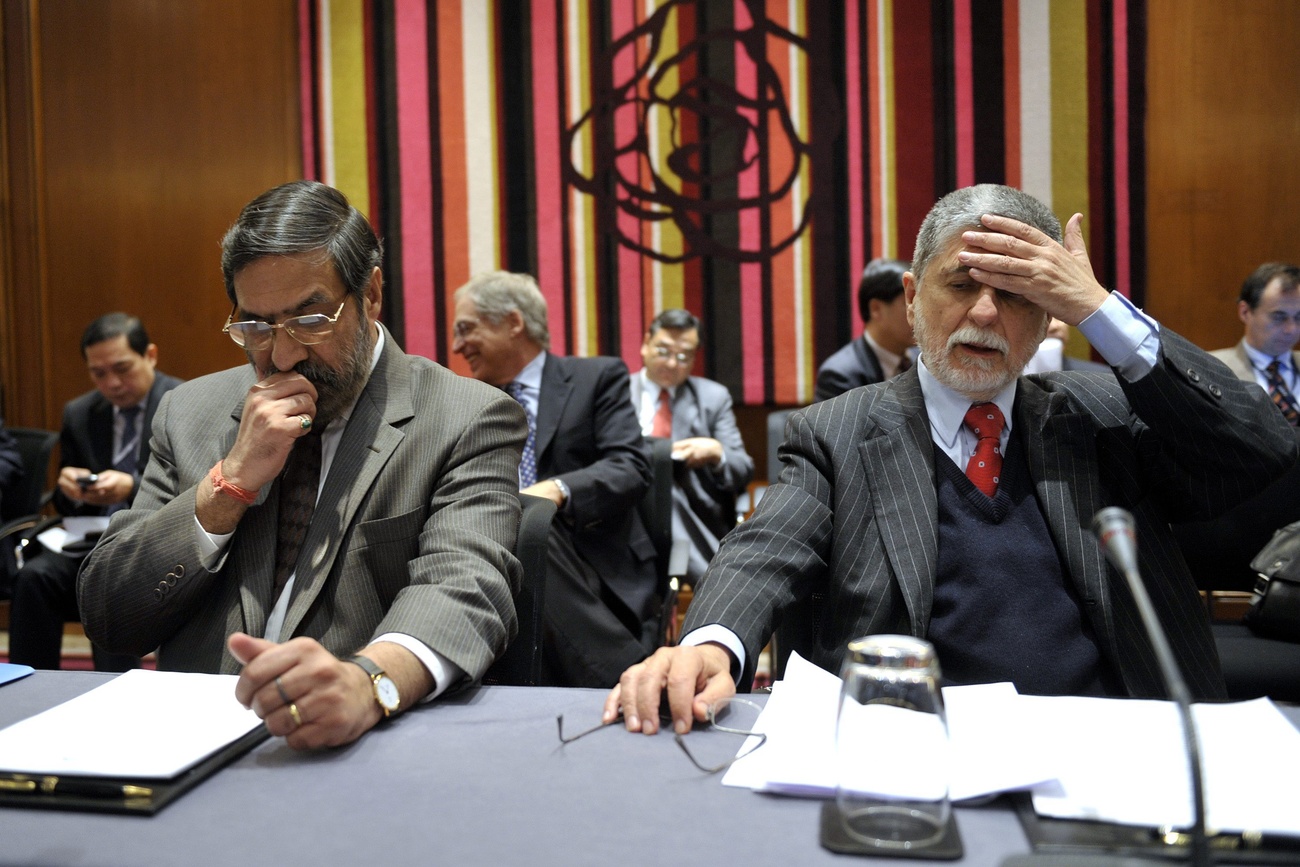
More
World Trade Organization: a long history
The hoarding of vaccines by rich Western countries has been heavily criticised by WTO director-general Ngozi Okonjo-Iweala, who called it “morally unacceptable”.
E. Tendayi Achiume, UN Special Rapporteur on contemporary forms of racism, has described inequality of treatment and access to Covid-19 vaccines as a form of “vaccine apartheid”.
The WTO proposal was opposed by the United Kingdom and Switzerland, both home to powerful pharmaceutical industries. A final agreement was approved as part of a global deal on Friday, with negotiations spilling over the original deadline fixed on Wednesday.
Other European pharmaceutical organisations also criticised the last-minute deal.
The European Federation of Pharmaceutical Industries and Associations (EFPIA) said it was “deeply disappointed”, while Business Europe expressed “regret”.
“It is not our ability to manufacture doses that stands in the way of vaccine equity but the capacity and infrastructure to deliver vaccination programmes around the world,” said Nathalie Moll, director-general of EFPIA.
“The past two years have underlined that the only effective response to pandemics is grounded in research, development and innovation. That ability to respond is built on having a solid IP [intellectual property] framework.”
Not enough?
Nonetheless, the proposal comes short of expectations of countries such as India and South Africa that had advocated a waiver for all Covid-related vaccines, treatments and diagnostics. Both countries were severely hit by the pandemic, with hundreds of thousands of people dying.
“The difficulty of this negotiation shows that we face a basic problem,” former Swiss president Ruth Dreifuss, told SWI swissinfo.ch. “On the one hand we need to provide access for everyone to vaccines, diagnostics and medicines at an affordable price. On the other hand the pharmaceutical industry, massively building on fundamental research financed by public money, is developing and producing revolutionary new medicines. The will of the biomedical industry to maintain the monopoly of production, even in the case of a global health emergency – this should be overcome. I doubt that this agreement is enough to do this.”
Civil society has also voiced concern about the lack of ambition of the current agreement, which fails to address treatment of Covid-related diseases.
“We’re disappointed with the inadequate outcome on waiving intellectual property for Covid-19 medical tools that resulted from more than 20 months of deliberations,” said Christos Christou, international president of Médecins Sans Frontières (MSF). Several representatives of civil society, including MSF and the People’s Vaccine Alliance, protested in the WTO building.
The WTO’s decision will be reviewed by member states within six months and may be extended to include all Covid-19 treatments.
‘Solution not ideal for all’
“We might reach a solution which would not be ideal for anyone. However, that would still be a solution,” Swiss Economics Minister Guy Parmelin said during a press conference prior to the agreement.
He argued that the distribution of vaccines was a larger barrier to vaccination than supply. More than 20 billion doses have so far been produced.
Edited by Virginie Mangin
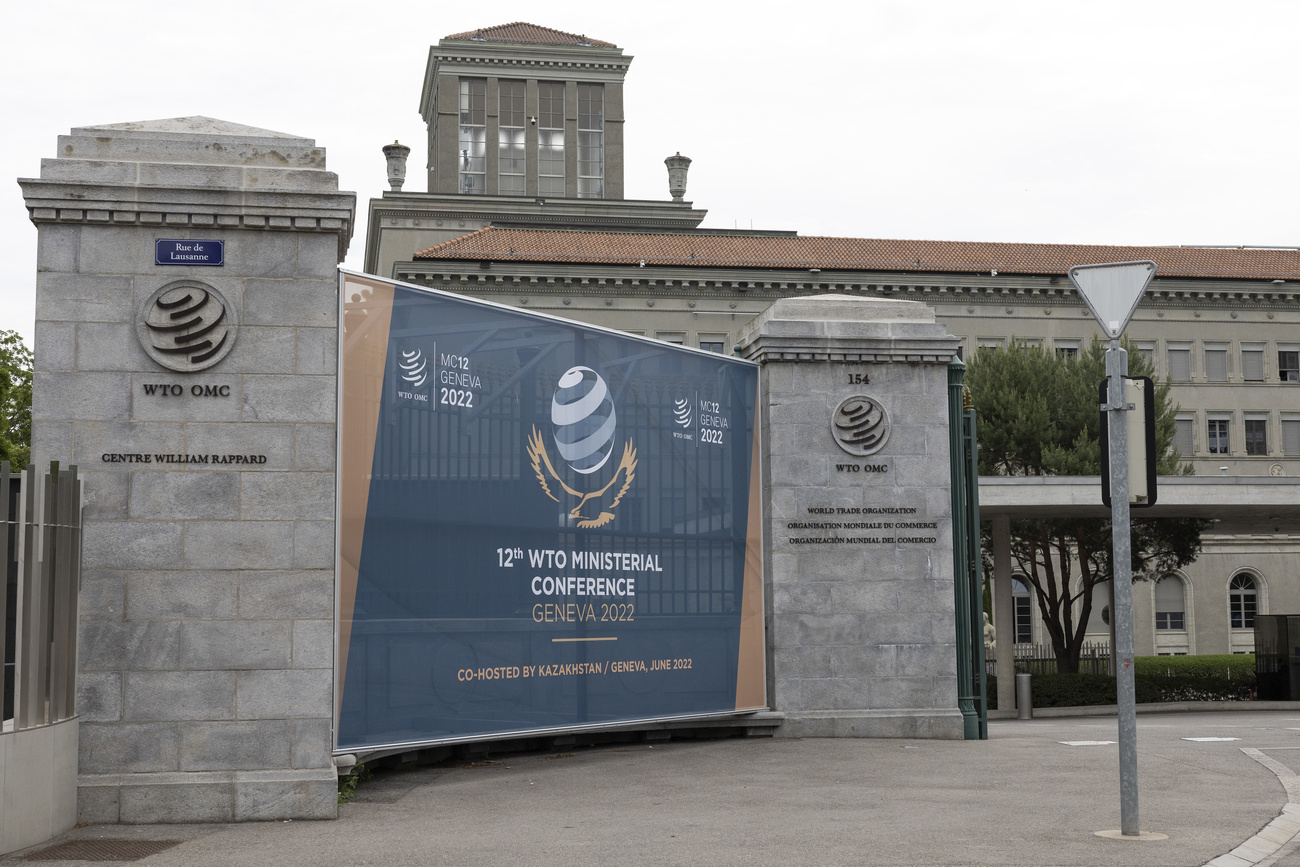
More
Will WTO break deadlock in next major meeting?

In compliance with the JTI standards
More: SWI swissinfo.ch certified by the Journalism Trust Initiative
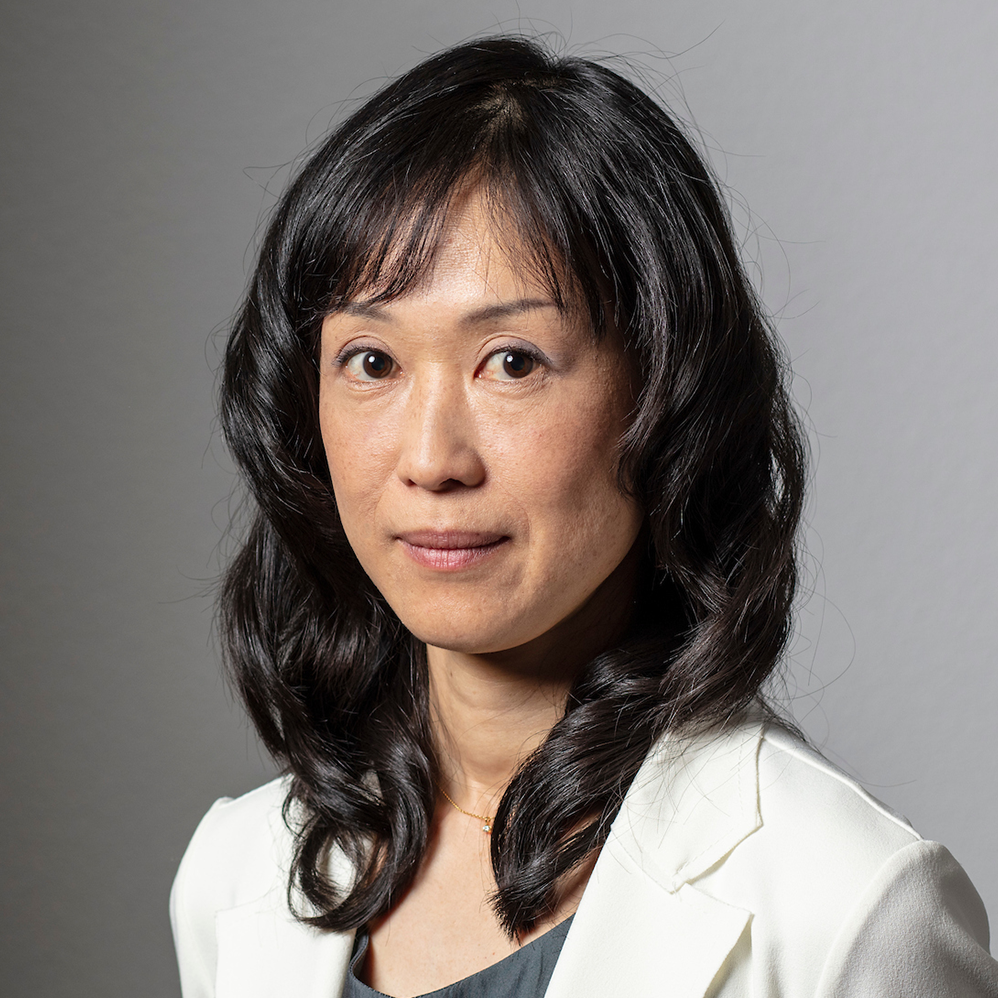








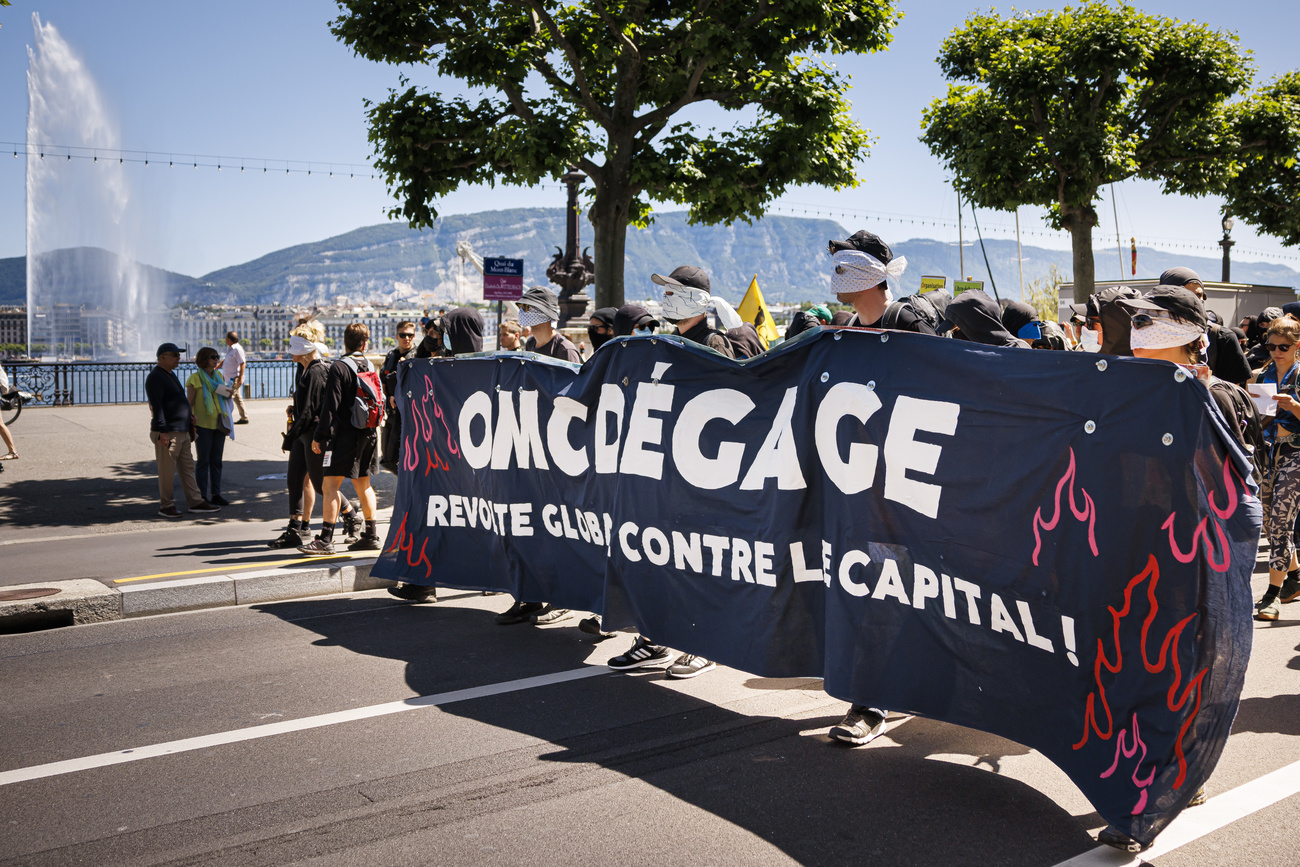
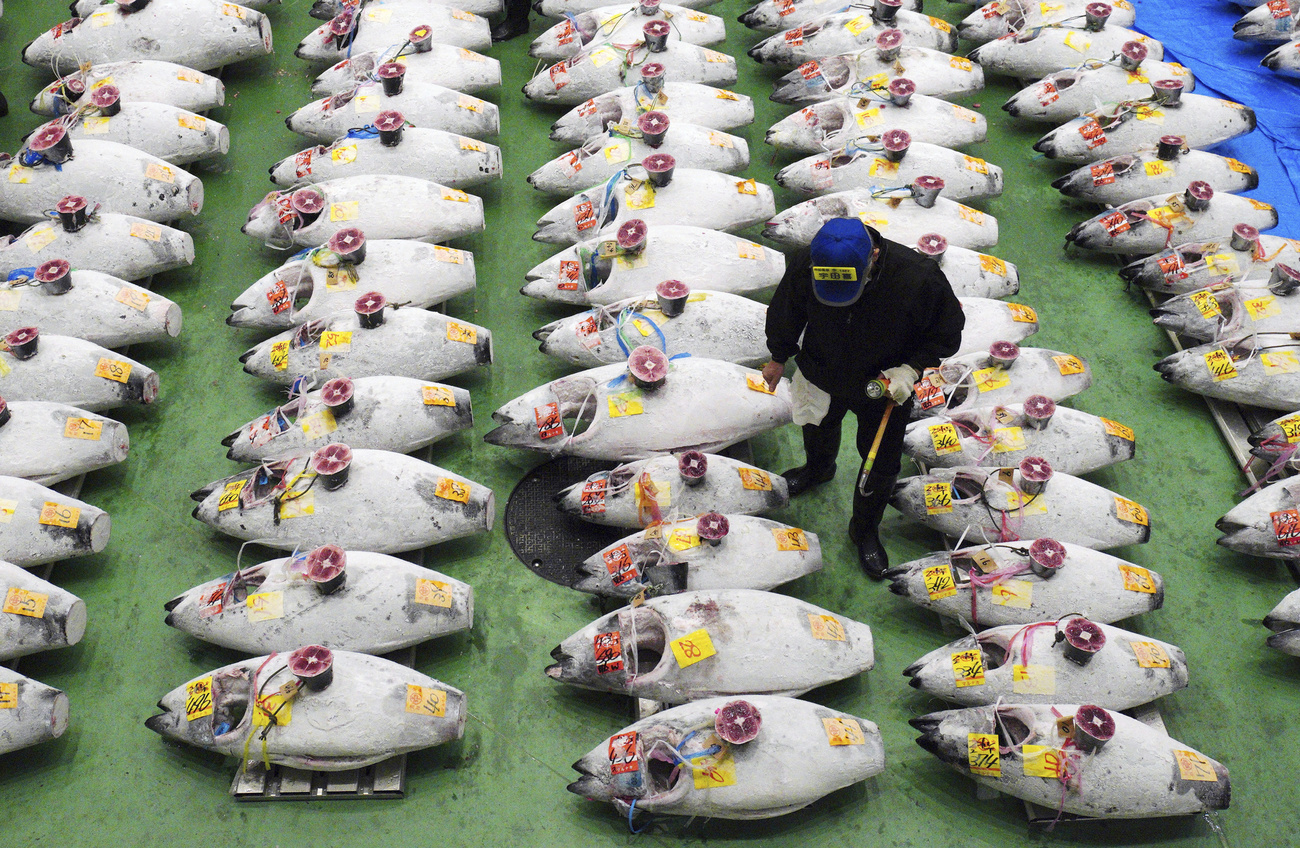
You can find an overview of ongoing debates with our journalists here . Please join us!
If you want to start a conversation about a topic raised in this article or want to report factual errors, email us at english@swissinfo.ch.